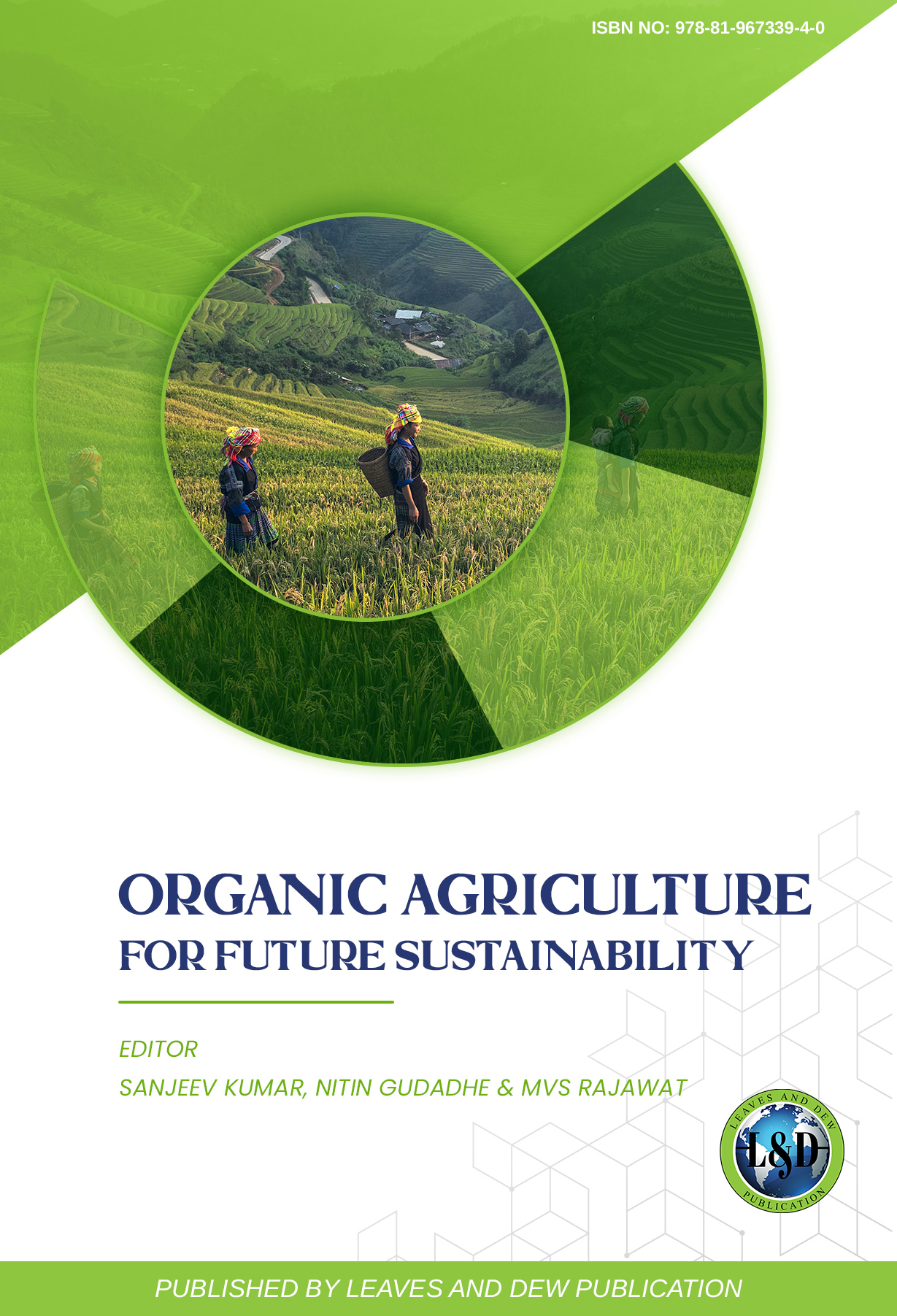Contribute a chapter to the Open Access book ‘ORGANIC AGRICULTURE FOR FUTURE SUSTAINABILITY’
CLICK HERE TO PARTICIPATE
ISBN No :- 978-81-967339-4-0
ORGANIC AGRICULTURE FOR FUTURE SUSTAINABILITY
About the book
Organic agriculture is a sustainable farming method that promotes environmental, social, and economic benefits. It is a holistic approach to farming that prioritizes soil health, biodiversity, and ecological balance while avoiding synthetic fertilizers, pesticides, and genetically modified organisms (GMOs). Organic agriculture relies on natural processes and inputs, such as crop rotations, cover crops, and compost, to maintain soil fertility and control pests and diseases. This approach reduces agriculture's environmental impact by minimizing synthetic chemicals and preserving soil health and biodiversity.
In addition to the environmental benefits, organic agriculture supports social and economic sustainability by promoting fair labour practices, supporting local food systems, and providing economic opportunities for small-scale farmers. Organic agriculture has been shown to be effective in improving soil quality, reducing greenhouse gas emissions, and supporting biodiversity. It also provides consumers access to healthier, more nutritious food free from synthetic chemicals and GMOs. However, there are also challenges to adopting and expanding organic agriculture, including the cost of certification and the lower yields associated with organic farming practices.
Organic agriculture is an important approach to sustainable farming that can help support our agricultural systems' long-term health and productivity. Continued research, education, and investment in organic agriculture can help to overcome the challenges and expand the adoption of this important farming method.
Although several books are available on the adoption of organic farming globally, we hardly find any book that can justify every aspect of organic farming. Hence, we proposed a book entitled "Organic Agriculture for Future Sustainability" by editors Sanjeev Kumar, Nitin Gudadhe and M. V. S. Rajawat to cover all aspects of organic farming. Hence book chapters are invited from interested authors.
Topic
1. Organic agriculture
2. Sustainable farming
3. Environmental benefits
4. Soil health
5. Biodiversity
6. Synthetic chemicals
7. GMOs
8. Crop rotations
9. Cover crops
10. Compost
11. Pest control
12. Fair labor practices
13. Local food systems
14. Small-scale farmers
15. Soil quality
16. Greenhouse gas emissions
17. Biodiversity conservation
18. Nutritious food
19. Certification
20. Lower yields
21. Research
22. Education
23. Investment
24. Long-term health
25. Productivity
SUBJECT AREAS AND KEYWORDS
| Organic agriculture | Sustainable farming |
| Biodiversity | Compost |
| Nutritious food |
